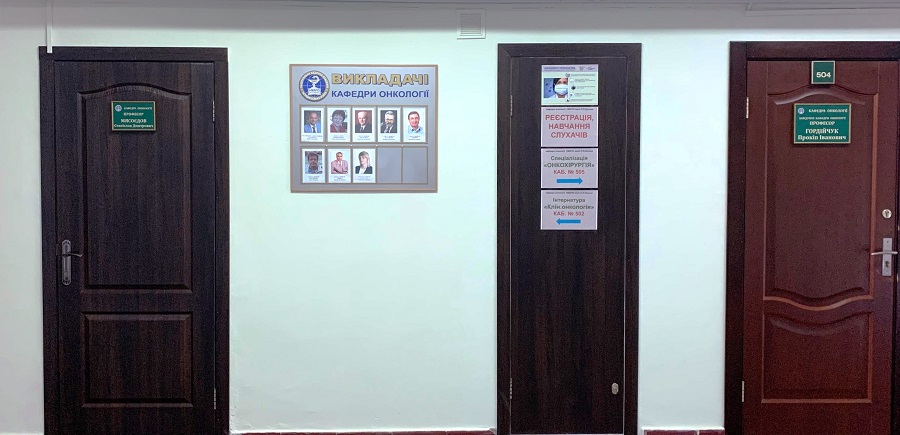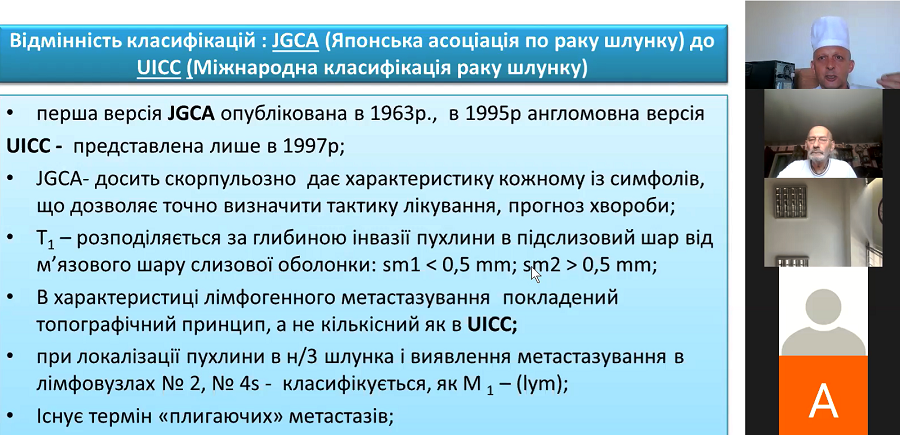According to the curriculum at the Department of Oncology, it is planned to teach 38 students of three - and four-month cycles of specialization and internship "Clinical Oncology" at the beginning of the second half of the academic year. The actual number of students at the end of the enrollment was more than 70 people.

Prior the start of the new academic year our department had a meeting with the main issues for consideration - the organization of the educational process at the department during the quarantine, following the recommendations of the Ministry of Education and Science of Ukraine and the Order of the Rector of the Academy №№ 3033, 3331issued on 26th August 2020 and on 11th September 2020.
The Head of the department, Professor Prokop Hordiichuk, presented the algorithm of registration and organization of mixed methods in the education process, using the three existing clinical bases, namely: The Kyiv City Clinical Oncology Center, The National Cancer Institute and The Kyiv Regional Clinical Hospital.
The main task is to separate the flow of students, the organization of training groups that would in the future meet requirements of the "orange" zone of the quarantine. Professor Hordiichuk reported that, before the start of the academic year, the department conducted sanitary renovations and prepared premises that will ensure the possibility of keeping the social distance, providing students with sanitizers, masks, gloves, and disinfectants. An additional system of registration of students in the database of the department was created using Excel for efficiency and improvement of students’ feedback. Professor Hordiichuk is grateful to the Administration of the Kyiv City Clinical Oncology Center for assisting in the preparation of the premises with means of prevention and protection, and the opportunity to perform ELISA to students in the laboratories of the center.

The process was organized in the following way: - cycles of specialization were split, groups of 12-14 students were created, in the first group, for the lectures and seminars distance learning (priority was given either to doctors who came from "orange" zones or there is a high risk of inclusion that territory in the "red" zone of the epidemic danger according to the dynamics of the morbidity), and the second group, for the practical work, was divided into subgroups of 5-6 students who did ELISA, and, upon receipt of negative results of tests, the educational process was organized at different clinical bases. The elected representatives of these groups created a virtual group on Viber and invited research and teaching staff of the department to speed up the process of the distance learning either on ZOOM or Discord, to provide additional information on changes in curricula, and updates on the epidemic measures. According to the academic work plan, the groups will be rotated every 2-3 weeks, depending on the epidemic situation, the presence of patients or contacts in the training group.
The distribution of students of cycles, the creation of distance learning groups, and small groups of the classroom and clinical training gives us the opportunity to localize the process in force-majeure circumstances, not to change radically academic work plans for the whole cycle, and complete the curriculum.



